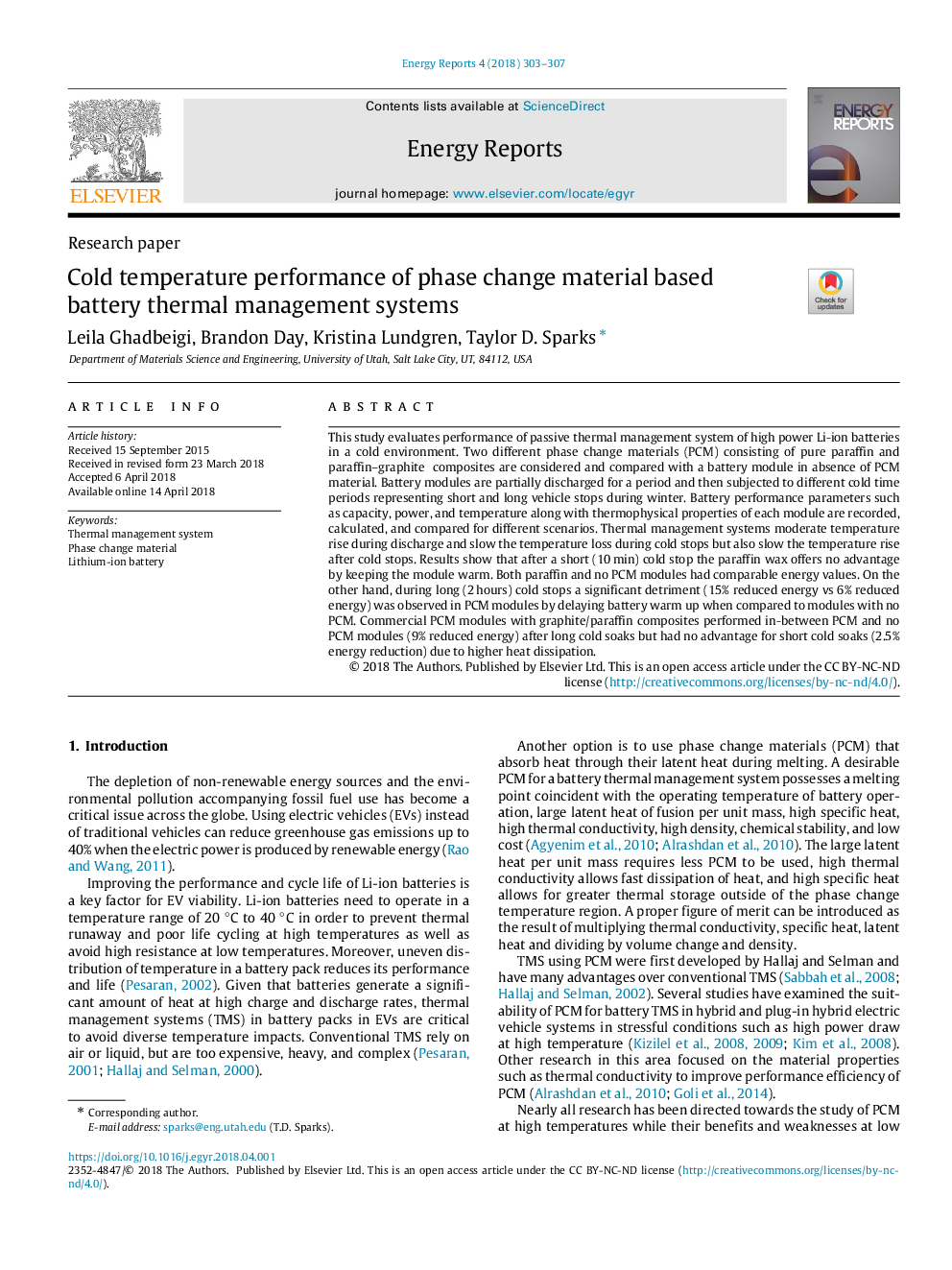| Article ID | Journal | Published Year | Pages | File Type |
|---|---|---|---|---|
| 8079594 | Energy Reports | 2018 | 5 Pages |
Abstract
This study evaluates performance of passive thermal management system of high power Li-ion batteries in a cold environment. Two different phase change materials (PCM) consisting of pure paraffin and paraffin-graphite composites are considered and compared with a battery module in absence of PCM material. Battery modules are partially discharged for a period and then subjected to different cold time periods representing short and long vehicle stops during winter. Battery performance parameters such as capacity, power, and temperature along with thermophysical properties of each module are recorded, calculated, and compared for different scenarios. Thermal management systems moderate temperature rise during discharge and slow the temperature loss during cold stops but also slow the temperature rise after cold stops. Results show that after a short (10 Â min) cold stop the paraffin wax offers no advantage by keeping the module warm. Both paraffin and no PCM modules had comparable energy values. On the other hand, during long (2 Â hours) cold stops a significant detriment (15% reduced energy vs 6% reduced energy) was observed in PCM modules by delaying battery warm up when compared to modules with no PCM. Commercial PCM modules with graphite/paraffin composites performed in-between PCM and no PCM modules (9% reduced energy) after long cold soaks but had no advantage for short cold soaks (2.5% energy reduction) due to higher heat dissipation.
Related Topics
Physical Sciences and Engineering
Energy
Energy Engineering and Power Technology
Authors
Leila Ghadbeigi, Brandon Day, Kristina Lundgren, Taylor D. Sparks,
